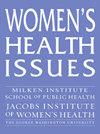Economic Insecurities and Mental Health Among Low-Income Pregnant People in the Central Valley Region of California
IF 2.5
2区 医学
Q2 PUBLIC, ENVIRONMENTAL & OCCUPATIONAL HEALTH
引用次数: 0
Abstract
Background
The association between economic insecurity and mental health among low-income pregnant people is understudied. We examined the relationship between economic insecurity and perinatal stress, anxiety, and depressive symptoms among a low-income, racially/ethnically diverse study population, and differentiated associations by nativity status.
Methods
We used cross-sectional data from the EMBRACE Study that enrolled Medi-Cal (California's Medicaid program) eligible pregnant people in the Central Valley region of California. Economic insecurity was assessed through measures of food insecurity, low financial well-being, inability to pay an emergency expense, inability to pay bills, fear of eviction, and history of homelessness. We examined the association of these measures with perceived stress (Perceived Stress Scale), generalized anxiety symptoms (Generalized Anxiety Disorder-7), and depressive symptoms (Patient Health Questionnaire-9), adjusting for age, relationship status, and education level. We also examined effect measure modification by nativity among the Latinx population. We report the estimated differences and 95% confidence intervals for each exposure and outcome.
Results
In our sample of 674 participants, we observed associations between economic insecurity and mental health. Among the 24 models, 15 showed medium to large effects (>0.35 standard deviation differences) and only three showed negligible effect sizes. Across all outcomes, we observed a stronger relationship between economic insecurity and mental health for U.S.-born Latinx people compared with their foreign-born (93% Mexico-born) counterparts.
Conclusion
We found low-income pregnant people experience significant economic insecurities that may impact mental health adversely. Programs that increase economic supports during pregnancy may serve as important maternal mental health interventions, especially among racial/ethnic minoritized groups.
加州中央谷地区低收入孕妇的经济不安全感与心理健康
背景:低收入孕妇经济不安全感与心理健康之间的关系尚未得到充分研究。我们在低收入、种族/民族多样化的研究人群中研究了经济不安全感与围产期压力、焦虑和抑郁症状之间的关系,并通过出生状况区分了两者之间的关联。方法:我们使用了来自EMBRACE研究的横断面数据,该研究纳入了加州中央山谷地区符合Medi-Cal(加州医疗补助计划)条件的孕妇。经济不安全是通过粮食不安全、低财政福利、无力支付紧急费用、无力支付账单、害怕被驱逐和无家可归的历史来评估的。我们检查了这些测量与感知压力(感知压力量表)、广泛性焦虑症状(广泛性焦虑障碍-7)和抑郁症状(患者健康问卷-9)的关联,调整了年龄、关系状况和教育水平。我们还检查了拉丁裔人口中出生对效应测量的影响。我们报告了每个暴露和结果的估计差异和95%置信区间。结果:在674名参与者的样本中,我们观察到经济不安全感与心理健康之间的联系。在24个模型中,有15个模型显示出中大型效应(>.35个标准差差),只有3个模型的效应大小可以忽略不计。在所有结果中,我们观察到,与外国出生的拉丁裔(93%出生在墨西哥)相比,美国出生的拉丁裔人的经济不安全感与心理健康之间的关系更强。结论:我们发现低收入孕妇经历了严重的经济不安全感,这可能对心理健康产生不利影响。在怀孕期间增加经济支持的项目可以作为重要的孕产妇心理健康干预措施,特别是在种族/少数民族群体中。
本文章由计算机程序翻译,如有差异,请以英文原文为准。
求助全文
约1分钟内获得全文
求助全文
来源期刊

Womens Health Issues
Multiple-
CiteScore
4.50
自引率
6.20%
发文量
97
审稿时长
32 days
期刊介绍:
Women"s Health Issues (WHI) is a peer-reviewed, bimonthly, multidisciplinary journal that publishes research and review manuscripts related to women"s health care and policy. As the official journal of the Jacobs Institute of Women"s Health, it is dedicated to improving the health and health care of all women throughout the lifespan and in diverse communities. The journal seeks to inform health services researchers, health care and public health professionals, social scientists, policymakers, and others concerned with women"s health.
 求助内容:
求助内容: 应助结果提醒方式:
应助结果提醒方式:


